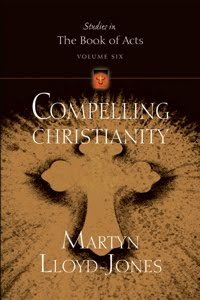Monday is my day off. It is for many ministers. But I find on my day "off" that I want to communicate the importance of exciting our relationship with God by means . . . whatever means helps us "see" God rightly in order to love him intimately.
One word of advice I pass along to the church family when the chance arises, is (assuming Bible reading) to pray a short prayer for enlightenment. Even a mere 10 seconds will do wonders in diverting interruptions and focusing our attention where it needs to be.
A second means to help comes from John Piper, which came out in our Sunday School lesson, his DVD series entitled, "When I Don't Desire God." This, along with several related resources can be found
here. It has a been a spiritual boon to our souls. In our adult class we chose to view it twice, pausing it the second time though whenever we needed to delve into his instructions a little deeper. It has been a marked blessing.
So, How Do We Start Monday?
I'm sitting here in my "easy chair" reflecting on this waiting to get back to the Bible to do what I am writing! Piper uses an acrostic to direct himself, an acrostic which utilizes only Scriptures--many familiar to the seasoned believer. Any one of these references is beautiful, but the combination is immensely helpful in opening our hearts rightly to God. And who doesn't need that? Here they are with my comments:
I.O.U.S.
First.
"Incline my heart to your testimonies, and not to selfish gain" (Psalm 119:36). Frankly, our hearts are quickly and easily turned toward other things, even when I am sitting down to read God's Word! Perhaps, "especially" when?! "To be forewarned is to be forearmed" applies well to our own hearts. Know your heart, and if it is like so many, "hedge your bets" by praying against such spiritual dullness. Ask for your heart to "incline" in God's direction.
Second.
"Open my eyes, that I may behold wonderful things out of your law" (Psalm 119:18). They're there--
"wonderful things" that is. We often have a difficult time detecting them. Hunters have an uncanny ability to spot deer way out in an open field, when non-hunters see nothing. Their eyes have been trained to "see." We need much the same when it comes to the things of God. And we do well to pray for it.
Third.
"Teach me your way, O LORD, that I may walk in your truth; unite my heart to fear your name" (Psalm 86:11).
Unite my heart. What does this mean? It can be easily understood when we realize that we can know things two ways, in our
heads and in our
hearts. Most of us understand this and have often heard it said, "It's not good enough to believe it in your head, but it must sink down 18" to your heart." The book of James is all about uniting our hearts. In fact, the opening salvo reveals that we need God's unlimited wisdom precisely because we can become "double-minded." In other words, our minds believe one thing while our hearts go in another. When the two are brought together it can be described as "purity," or "single-mindedness." Unite my heart to fear your name. Very good prayer!
Fourth.
"Satisfy us in the morning with your steadfast love, that we may rejoice and be glad all our days" (Psalm 90:14). All of humanity wants to be happy. Of course, there are many aberrant ways in which to seek it. But we urge others to seek satisfaction in God alone. After a long build-up to the weekend, and an especially long (and
wonderful) Sunday, I still want (yes,
especially want) satisfaction in my Lord on Monday morning when I tend to be weary. The worth of our satisfaction falls in direct proportion to the thing doing the satisfying. Whether it's my wife, my job, or the football game. Each can satisfy me, but in a different way. But when GOD does the satisfying, there is NOTHING like it, because there is no one like God! Pray that we not be satisfied by lesser things. Think BIG!!
Again, these are astute prayers; they take into consideration my fallible heart and pave the way to overcome it, directing me into a wonderful unfolding of the ways of God. May I urge everyone who loves God to pursue such prayers ere they open the Word of God.
+










